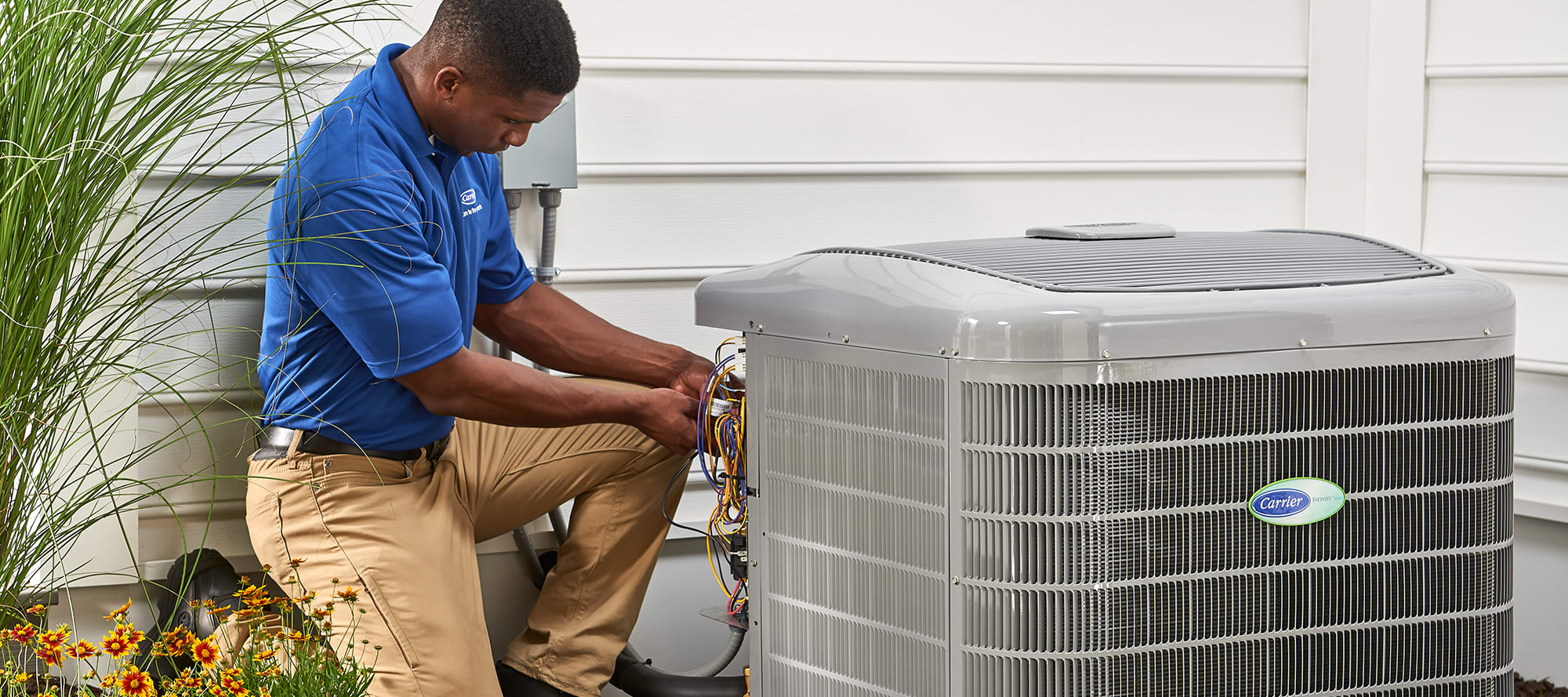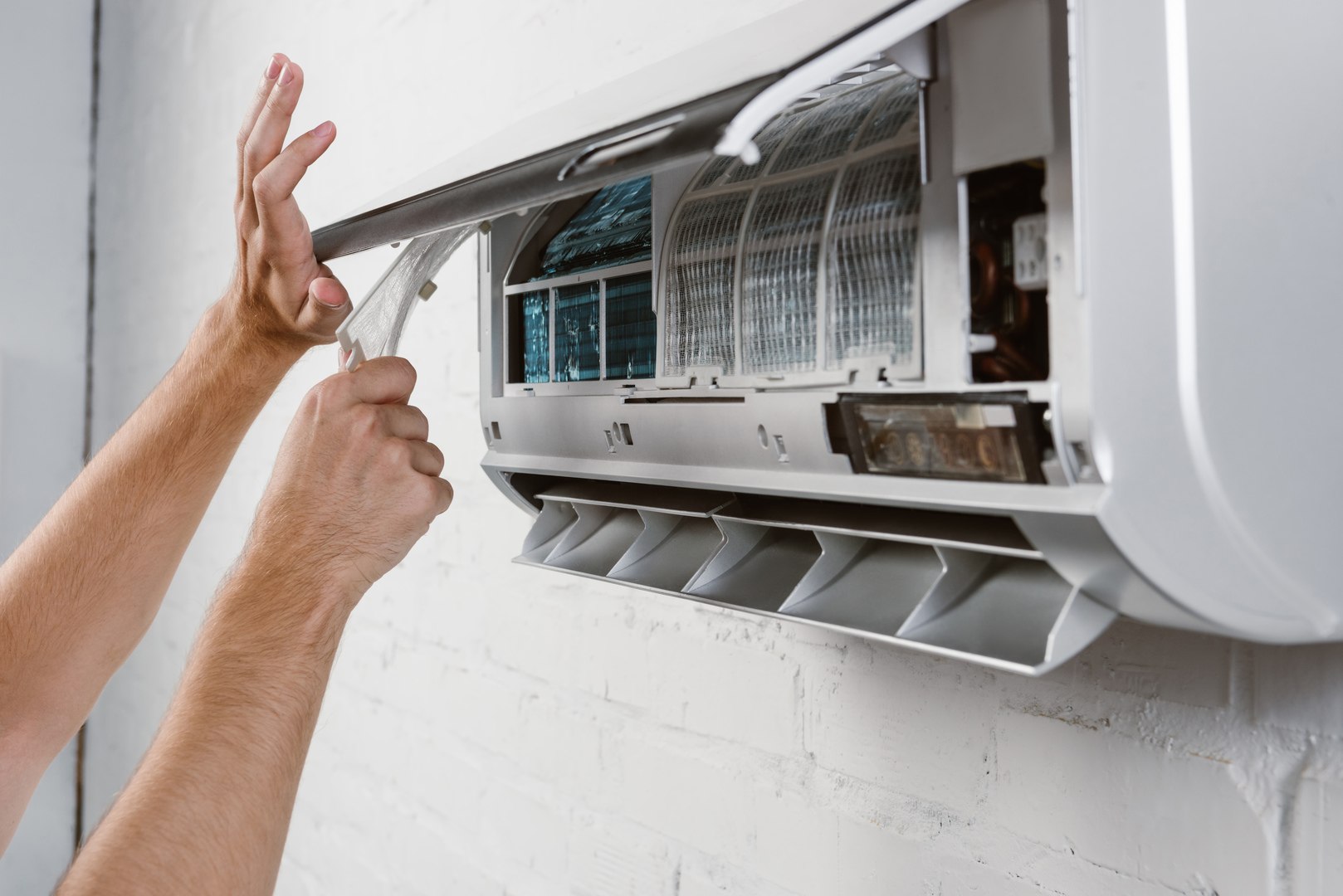Air Conditioning Sound Troubles: Recognizing and Fixing the Source

Did you recognize that about 75% of home owners experience a/c sound problems at some time? When your a/c begins making odd sounds, it can be quite turbulent to your peace and convenience.
From rattling and buzzing to screeching and banging, these noises can indicate underlying issues that require focus. Determining the source of the sound is important for efficient repair work and ensuring your air conditioning system operates effectively.
So, if you're tired of tolerating irritating air conditioning sounds disrupting your harmony, there are remedies at hand.
Secret Takeaways
- Normal maintenance is vital to deal with usual air conditioner sound resources like ductwork issues and malfunctioning motors.
- Address vibrating noises by evaluating for loosened components, preserving follower electric motors, and adding vibration isolation pads.
- Squealing and banging noises can be settled by examining belts, follower blades, and compressor coils for concerns.
- Repair a/c sound issues by performing aesthetic evaluations, executing soundproofing strategies, and troubleshooting for obstructions.
Common Air Conditioning Noise Resources
If your cooling system is making uncommon noises, it could be as a result of among numerous usual sources.
One frequent wrongdoer is problems with the ductwork. Over time, ducts can develop leaks, loosened connections, and even obstructions. These issues can trigger air to move unevenly, leading to whistling or rattling audios. A detailed ductwork examination by a specialist can assist identify and rectify these problems, restoring your system's smooth operation.
Another typical source of noise in a/c systems is a faulty electric motor. The electric motor is an important element that drives the fans and various other relocating components within the system. If the motor is worn out or harmed, it can produce grinding, screeching, or clunking noises. In such cases, motor substitute may be essential to remove the source of the disruption. Normal maintenance and timely electric motor substitute when needed can aid maintain your cooling system running silently and successfully.
Detecting Rattling and Buzzing Appears
To attend to rattling and humming audios in your air conditioning system, begin by evaluating the elements that might be triggering these noises, such as loosened parts or worn-out elements. Resonance isolation is type in dealing with these concerns. Look for any kind of loosened screws, screws, or panels that might be shaking versus each other throughout operation. Tightening up these can often reduce the rattling sounds.
Additionally, inspect the follower electric motor for any kind of indicators of deterioration. Normal follower motor upkeep, such as lubrication and cleansing, can help in reducing buzzing audios triggered by rubbing or breakdown.
If the rattling continues after inspecting and tightening up parts, take into consideration adding vibration isolation pads or places to take in the excess vibrations. These pads serve as a barrier between the shaking parts, minimizing the noise. Bear in mind that resolving these sounds quickly can stop additional damage to your air conditioning system and ensure its peak efficiency.
Dealing With Squealing and Banging Sounds
When attending to screeching and banging sounds in your air conditioning system, start by recognizing the source of the sounds with a thorough examination of the system's components. Examine the belt stress along with the motor bearings, as loosened belts or worn-out bearings can lead to squealing sounds. Evaluate the fan blade for any type of obstructions or damages that might cause banging audios when the fan turns. In addition, check out the compressor coil for any kind of debris or problems that can be producing the sounds.
To deal with squealing sounds connected to belt stress, change the tension adhering to the supplier's standards to see to it it's within the advised variety. If the electric motor bearings are the culprit, think about lubricating them preferably; otherwise, they might need to be replaced. For banging sounds brought on by follower blade issues, repair service or change the damaged blades immediately. When it involves the compressor coil, cleaning it extensively can typically resolve any type of noise-related problems. By attending to these potential sources of squealing and banging noises, you can recover your a/c system to its finest working state.
Tips for Fixing Cooling Noise
When confronted with a/c noise issues, begin by conducting an aesthetic examination of the system's elements for any visible indications of damage or wear. Seek loose parts, worn-out belts, or particles that may be causing the sound. If you discover any kind of problems, make certain to tighten loose parts, replace harmed parts, and clean out any type of particles to see if the sound enhances.
To address air conditioning noise issues, consider soundproofing strategies to lower the audio transmission from the system. Shielding the wall surfaces around the device, mounting soundproofing panels, or positioning rubber pads below the device can aid wet the sound properly.
Routine upkeep is key to preventing air conditioning sound. Be certain that the device is tidy, lubricated, and well-maintained to reduce potential concerns. Fixing steps like checking the fan blades and motor for any kind of obstructions can likewise aid diagnose and deal with sound issues. For small issues, DIY solutions such as tightening screws or changing elements might settle the sound without the need for professional aid.
Making Sure Effective A/c Operation
Guarantee your air conditioning operates successfully by organizing regular maintenance checks and maintaining the unit clean and well-lubricated. Ensuring your air conditioning system operates at its ideal not just reduces sound yet additionally lowers energy consumption. To accomplish this, apply noise decrease strategies such as putting vibration pads under the device to moisten audio transmission and making certain all elements are safely tightened up. Additionally, tidy or replace air filters frequently to stop air flow clogs that can strain the system and increase noise degrees.
Power consumption optimization is essential for efficient air conditioning operation. Establish your thermostat to a proper temperature to stay clear of straining the unit. https://charltonacinstallation.co.uk Utilize ceiling followers to assist flow great air better, enabling you to raise the thermostat a little without compromising convenience. Consider installing a programmable thermostat to change temperatures immediately when you're away. By complying with these strategies, you can preserve a comfy interior environment while decreasing power prices and sound levels.
Often Asked Questions
Can Cooling Sound Levels Influence the High Quality of Indoor Air?

High cooling sound levels can influence interior air quality by contributing to environmental pollution, which can affect your health.
To address this, think about soundproofing options to reduce the sound from your air conditioning device.
Is There a Connection Between Air Conditioning Sound and Energy Performance?
When it involves air conditioning sound and power efficiency, there's without a doubt a connection.
The loud sounds created by your air conditioner device can show inefficiencies that lead to enhanced energy intake.
By addressing and decreasing the sound pollution, you can improve the total performance of your system.
Just How Can I Reduce Air Conditioning Noise Without Jeopardizing the Air Conditioning Performance?
To lower cooling noise without jeopardizing cooling efficiency, take into consideration soundproofing services like acoustic insulation.
You can optimize performance by adjusting the system for performance while moistening undesirable noises.
Attempt making certain all elements are properly set up and maintained, and check for loose components that might be causing too much sound.
Exist Any Kind Of Details Laws or Guidelines Regarding Appropriate Noise Degrees for Air Conditioning Units?
When it involves cooling units, there specify regulations and guidelines in position to guarantee conformity with appropriate sound levels. These requirements aid receive a comfortable environment without causing disruptions.
Regulations relating to noise degrees for cooling systems differ depending upon area, however usually concentrate on lessening audio exhausts to a level that doesn't disrupt daily tasks. It is essential to be conscious of these guidelines to make sure your system fulfills the required requirements.
What Are Some Long-Term Maintenance Tips to avoid Cooling Noise Issues in the Future?

To avoid cooling noise problems long-term, make certain you stay with regular upkeep. Clean or change filters, check for loosened parts, and keep the device clean.
Consider soundproofing strategies like adding insulation around the device. By staying on top of maintenance and taking actions to reduce noise, you can delight in a quieter and more efficient air conditioning system in the future.
Verdict
Since you have identified the typical resources of a/c sound and found out how to diagnose and repair them, you can take pleasure in a quieter and extra efficient air conditioning system.
Bear in mind to consistently check for any type of uncommon sounds and resolve them quickly to prevent any further damages.
By looking after your air conditioner unit, you can assure it operates smoothly and properly for years to find.
